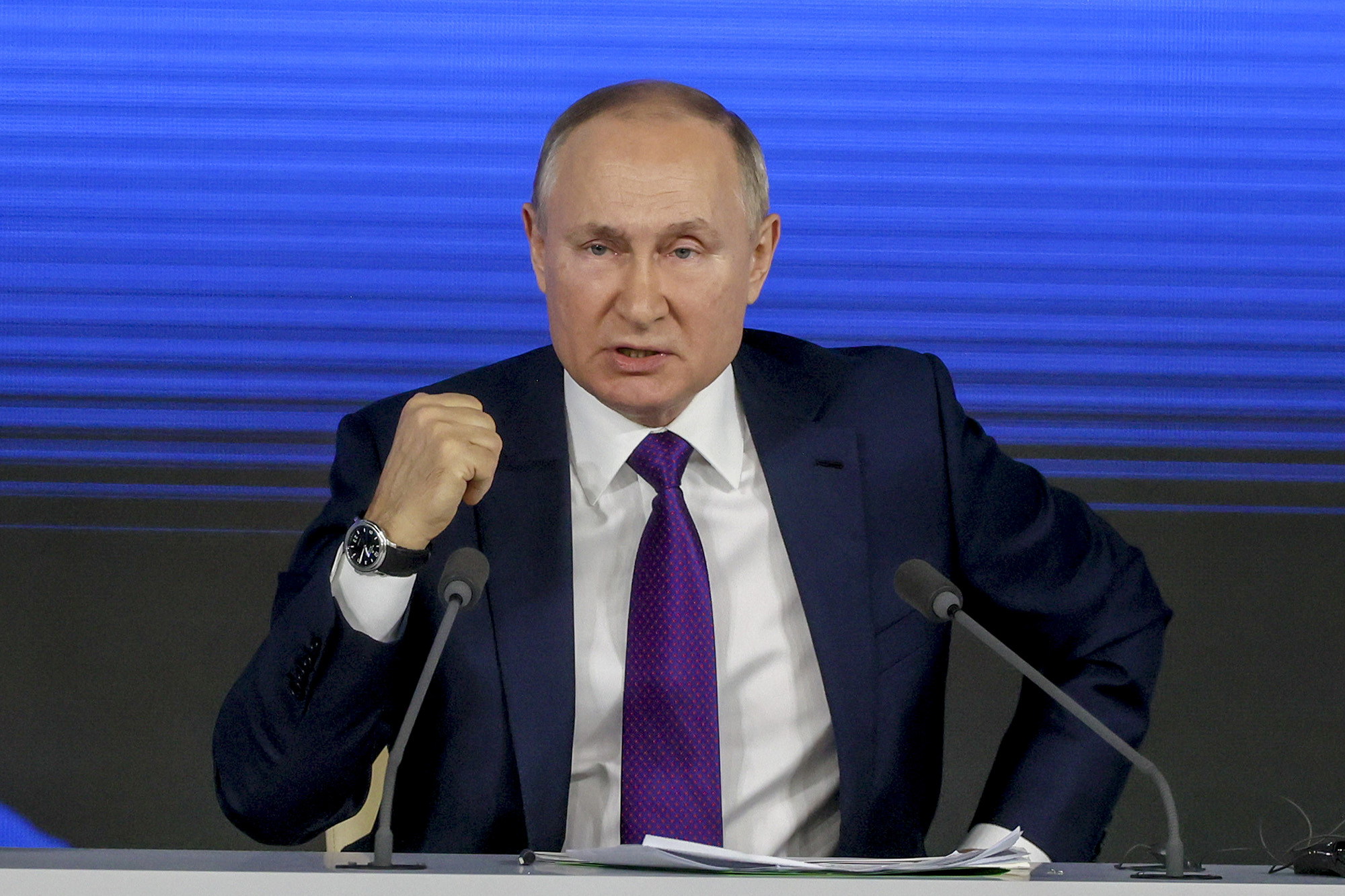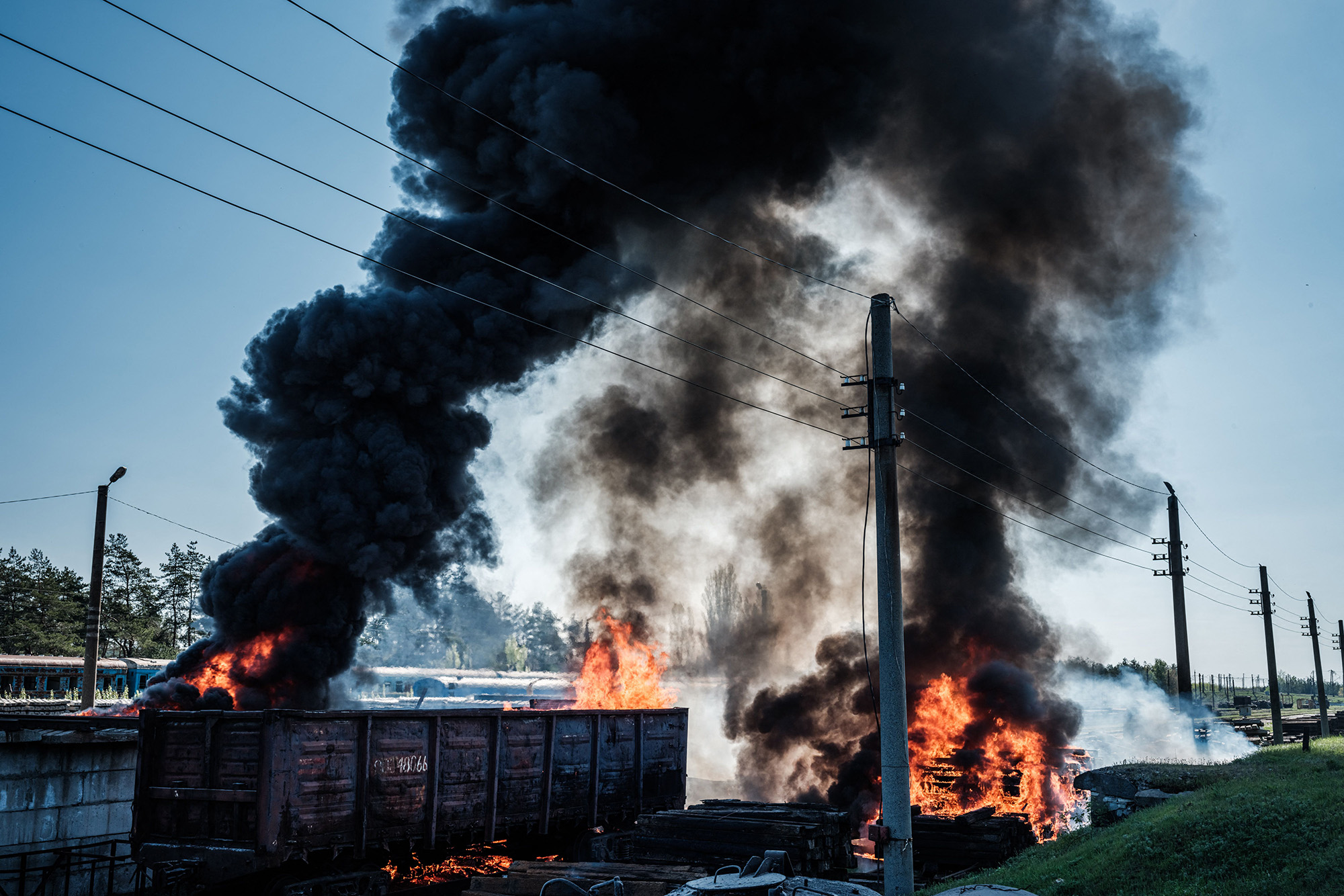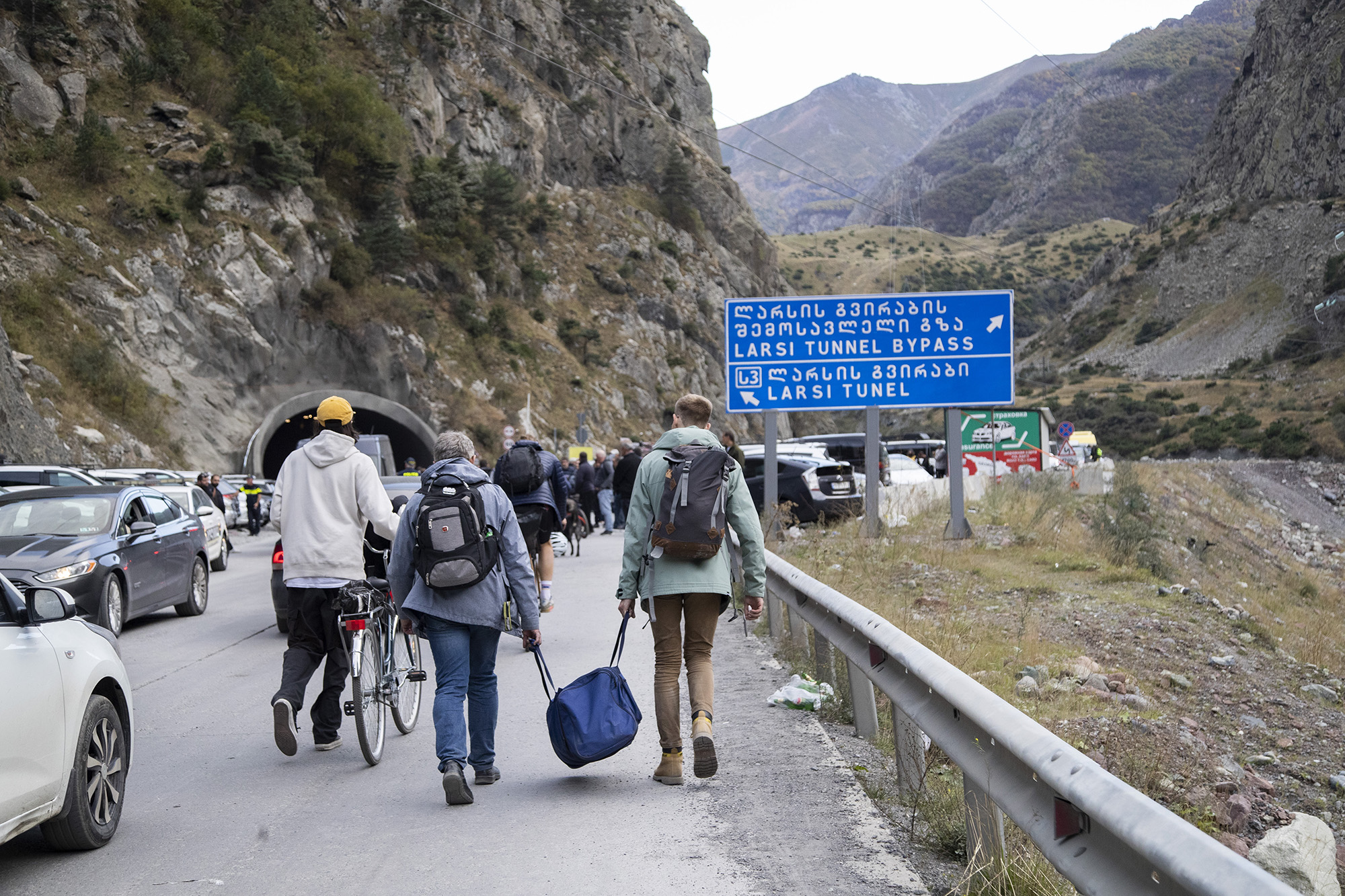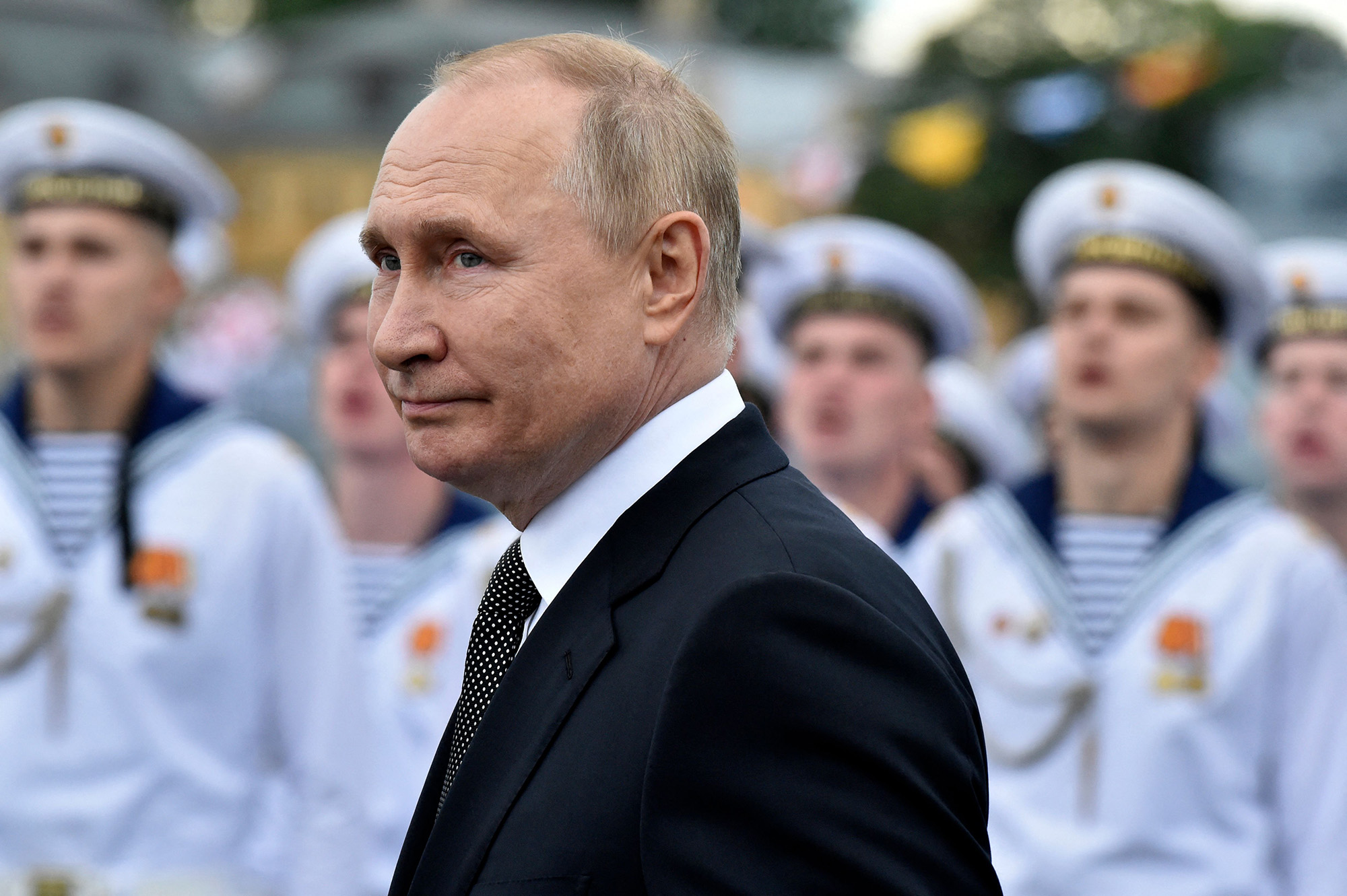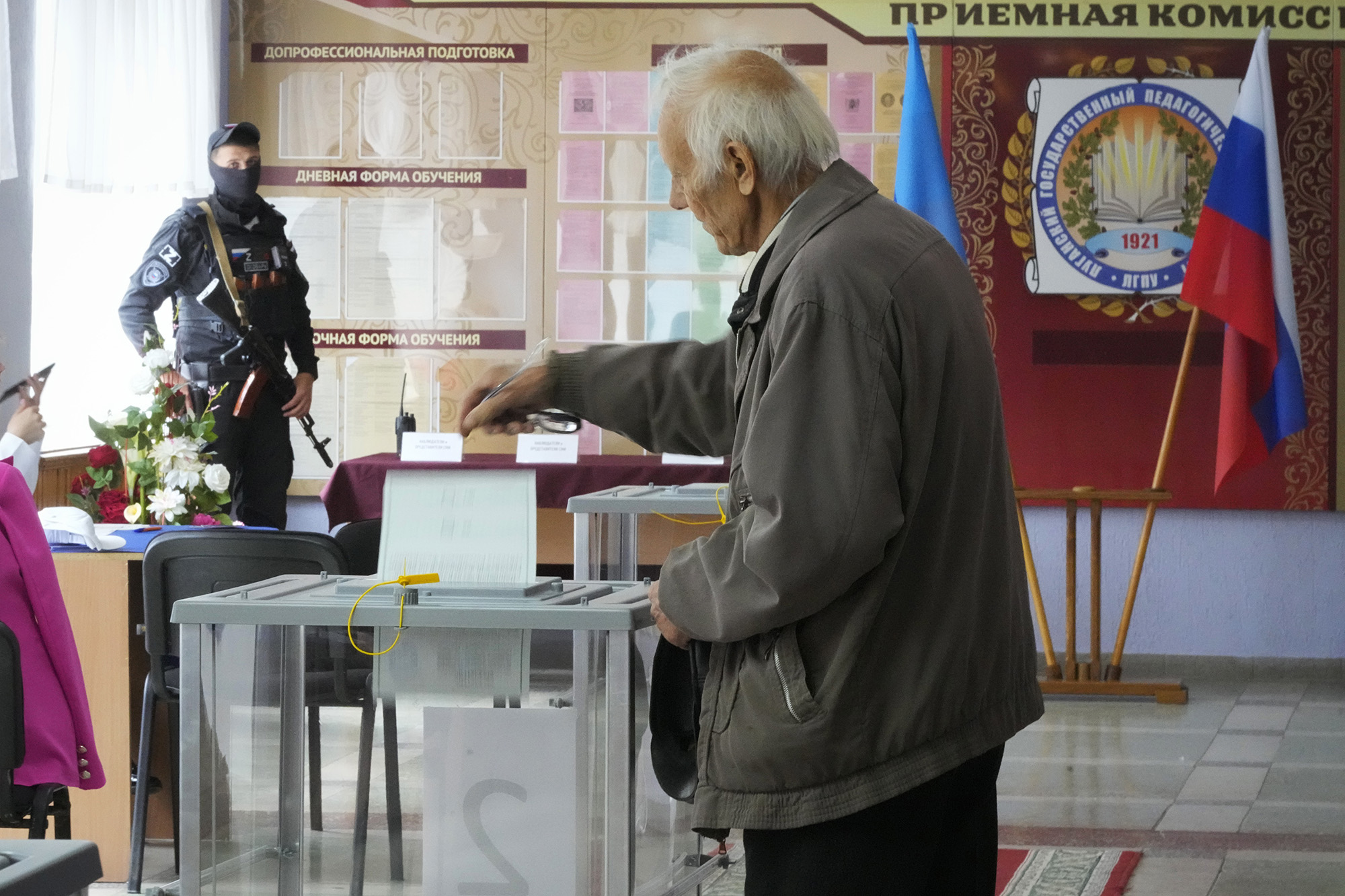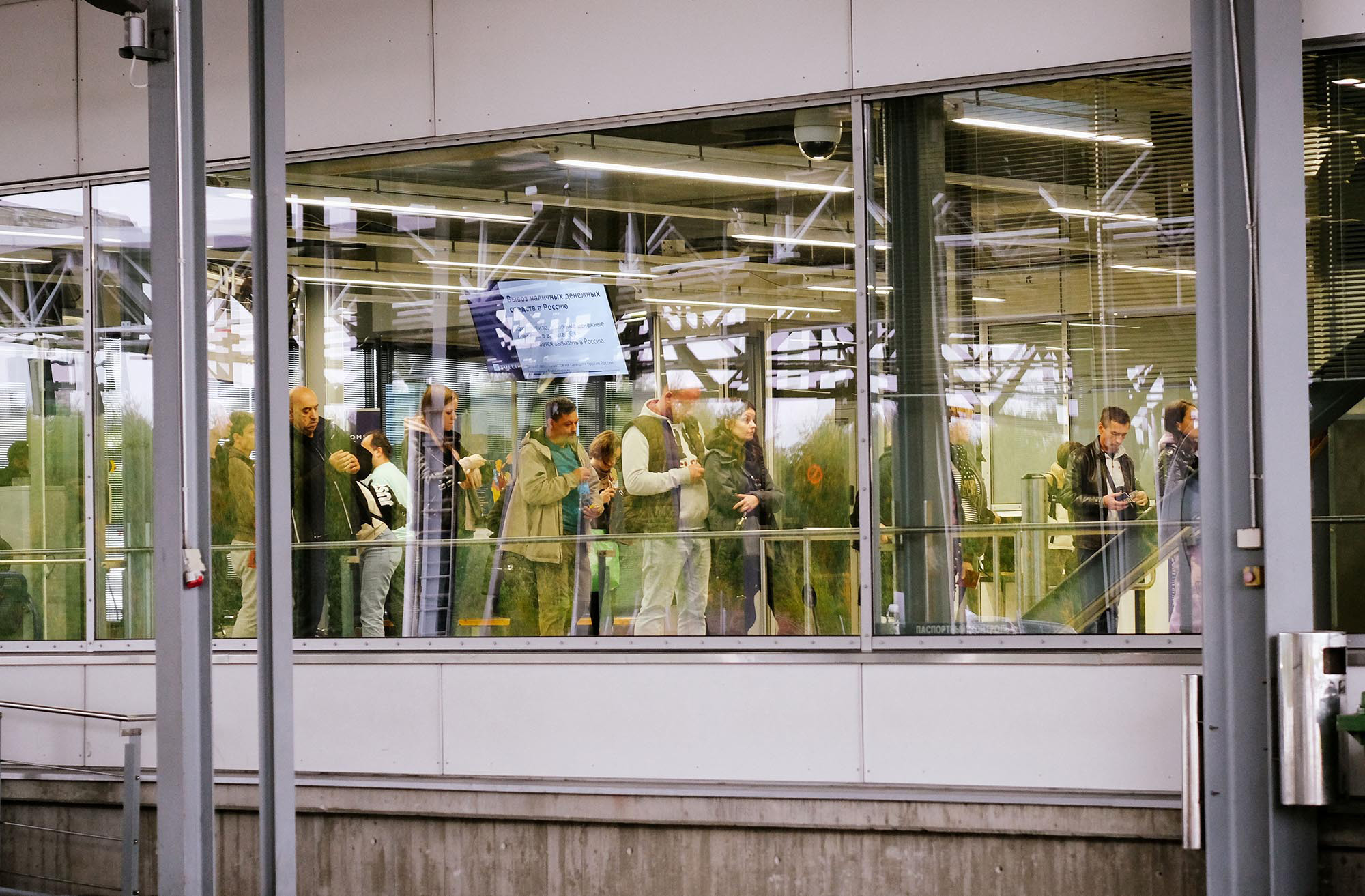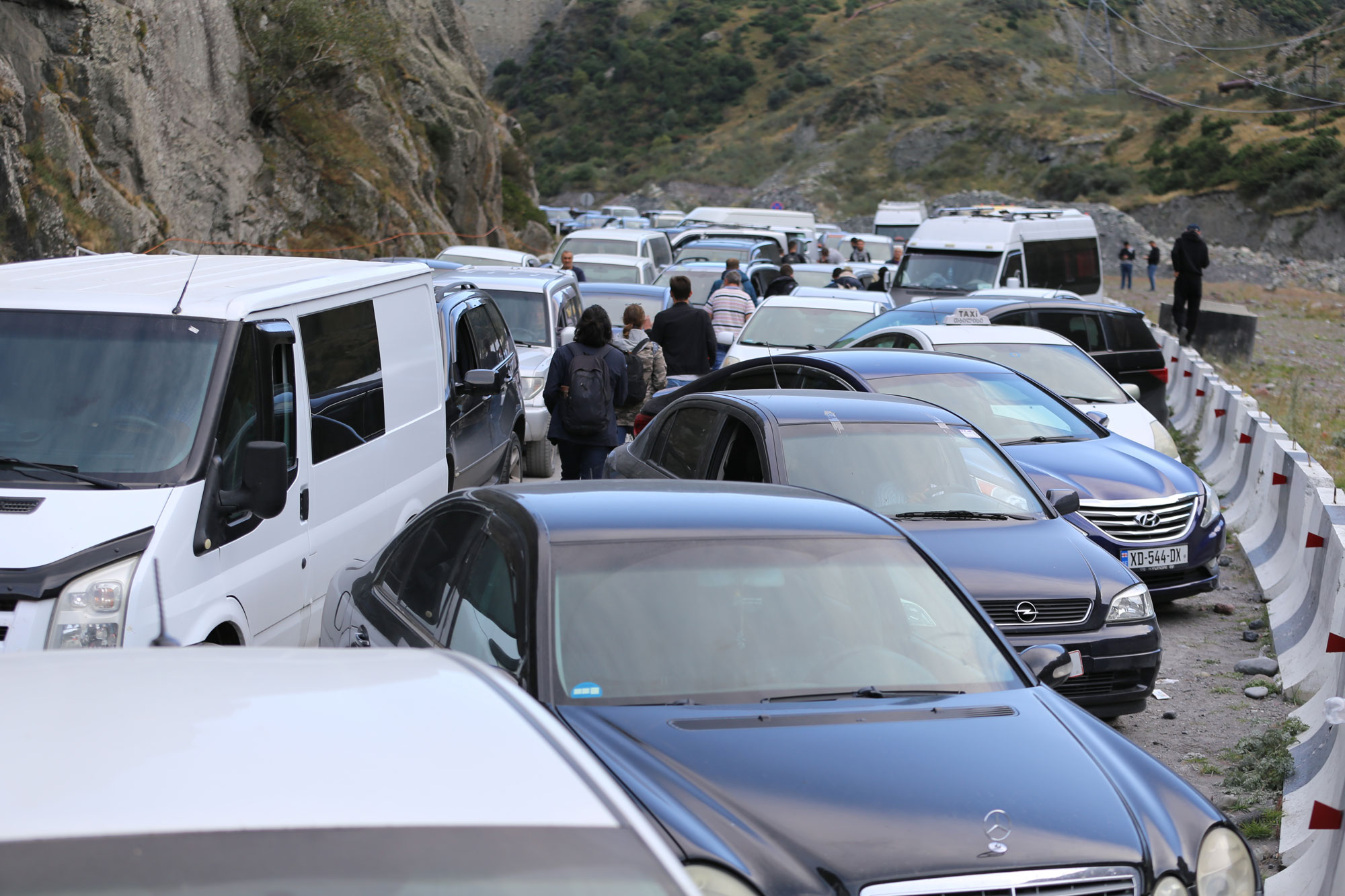
More than 200,000 people have traveled from Russia into Georgia, Kazakhstan and the EU since Russian President Vladimir Putin announced the immediate “partial mobilization” of Russian citizens on Sept. 21, collective data from various countries shows.
Here's a breakdown of the numbers:
- Approximately 100,000 Russians have crossed into Kazakhstan in the last week, Marat Kozheyev, Kazakh deputy minister of internal affairs, said Wednesday, according to Kazinform, a state-owned news agency.
- At least 53,136 people have crossed the Georgian-Russian border between Sept. 21-26, data released by Georgia's Ministry of Internal Affairs Tuesday shows.
- Nearly 66,000 Russian citizens have entered the European Union over the past week (Sept. 19-25) — a more than 30% increase in comparison to the past week, the European Border and Coast Guard Agency Frontex said Tuesday.
This information does not include data from Mongolia and Armenia, where Russian citizens have also traveled in the past days. Official data from Russia has not been publicly available on how many Russian citizens have left the country since Sept. 21.
More on Putin's order: Russia’s mobilization announcement for its war in Ukraine sparked protests and an exodus of Russian citizens from the country, as the Kremlin tightened rules around evading military orders. Russian Defense Minister Sergei Shoigu announced on Sept. 21 that up to 300,000 men with previous military experience will be drafted.
The number of Russians fleeing country to avoid call-up “likely exceeds” the number of troops that invaded Ukraine in February, the UK Ministry of Defense said Thursday.
Meanwhile, Kremlin spokesperson Dmitry Peskov said Tuesday he does not know the number of people who have left the country since the announcement. Independent Russian media outlet Novaya Gazeta Europe on Tuesday cited a source in the Russian presidential administration as saying the FSB (Federal Security Service of Russia) reported 261,000 men fled Russia since the announcement of the mobilization on Sept. 21.
